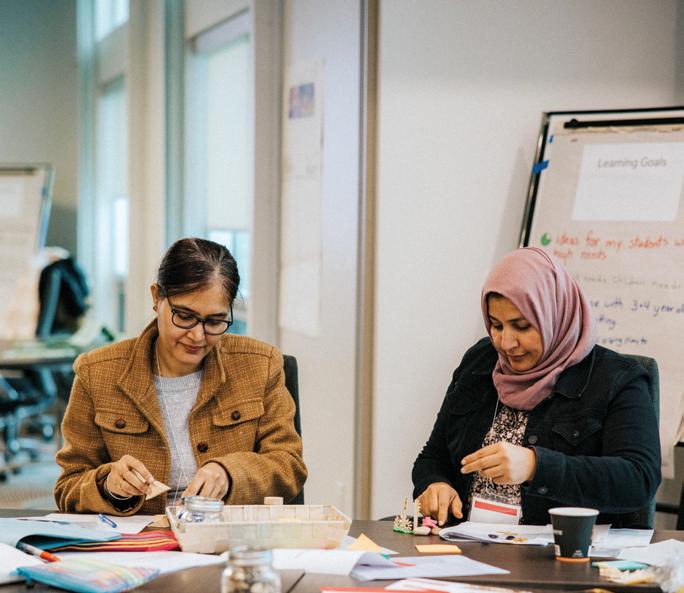




SUMMER 2024 | VOLUME 90, NO. 3
ISSN 2816-3885 (Print) ISSN 2816-3893 (Digital)
The Saskatchewan Teachers’ Federation Bulletin is published four times during the school year and is distributed both electronically and in print.
Have a story idea or a topic you would like us to include? We’d love to hear from you. Reach us at stfcommunications@stf.sk.ca
For our current advertising rate card or to book an advertisement, please contact stfcommunications@stf.sk.ca.
Editor: Courtney Forseth, Managing Director of Communications and Public Relations
www.stf.sk.ca INSTAGRAMFACEBOOKX-TWITTERYOUTUBE @SaskTeachersFed ©20 24 . For permission to reprint, please contact the editorial office. Indexed in the Canadian Education Index ISSN 0036‑4886.
of the Canadian Educational Press Association and the Educational Press Association of America.
Over the last year, I have been blown away by the solidarity and resolve of our members. Saskatchewan Teachers’ Federation members, you have stood firm for your students and colleagues through what has been a historic and unprecedented year for the STF and publicly funded schools.
As I write this message on May 23, we have a tentative Provincial Collective Bargaining Agreement on the table for a ratification vote on May 29 and 30. By the time this issue of the Bulletin has gone to print, that vote will be behind us. Regardless of the outcome, our fight for public education is not over. We will continue to hold this government accountable for the issues facing our classrooms, and we will continue to advocate strongly for the support our students and colleagues need.
On behalf of the STF Executive and the Teachers’ Bargaining Committee, I want to share a deep and heartfelt thank you to everyone who has added their voice or taken action to fight for improvements to publicly funded schools. From teachers, parents and families, students, local business owners, community leaders, labour partners, unions, and too many others to count, people have shown their support for our cause across the province and country. This support was seen on strike days, at our rallies and mini rallies, through encouraging messages to members and our Federation, on social media and in store windows, bumper stickers and pins. Through our Tell Them Tuesday campaign, people have sent nearly half a million emails and phone calls to decision makers in government and school boards. This public pressure has helped to change the conversation about public schools, has raised awareness about the issues facing classrooms, and has brought public education to the forefront of discussions as we head into a provincial election.
These efforts have and will continue to move the needle in support of Saskatchewan’s students and teachers, as we all continue to advocate for public education in Saskatchewan. Teachers and the public are united, and that is our strength. Parents and families have shown how much they respect, value and appreciate the teachers in their children’s lives. Over the last year, sector relationships have been further damaged, and trust has been eroded. The government has acknowledged publicly that the status quo isn’t working for students and teachers. The STF is committed to doing the work required to rebuild these relationships, while also pushing our education partners to fulfill the unique responsibilities within their roles to ensure all students receive a high quality education.
I hope everyone enjoys a restful summer, incredibly well deserved after the year we’ve had.
Samantha Becotte Saskatchewan Teachers’ Federation President


Due to production timelines, this article was finalized on May 22, 2024. For the most up-to-date information on bargaining, please visit the STF’s website.
While teachers undoubtedly are “June tired,” it has not impacted their collective and unwavering resolve to improve public education in Saskatchewan. Regardless of how or when this round of negotiations is resolved, it is abundantly clear that Saskatchewan teachers are united, committed to their profession and determined to ensure students’ needs are met.
Not only has this round of bargaining demonstrated the collective strength of Saskatchewan teachers, it has also shown how much public education is valued by parents, students, business owners and others in the community.
Before bargaining kicked off last spring, more than 3,500 people gathered outside the Saskatchewan Legislative
Building to show their concern for the state of public education and send a message to government. The Rally for Public Education drew a crowd of not only teachers, but also students, parents, caregivers, business owners and labour unions. Similarly, the speaker lineup included a broad range of supporters, and even included two elected school board trustees: Sarah Cummings Truszkowski from Regina Public and Shauna Weninger from Regina Catholic. The pure size of the crowd, coupled with its obvious passion, set the tone for what would turn into a year of bargaining and the longest job action ever taken by Saskatchewan teachers.
Early in 2023, the Federation warned members it was expected to be a difficult round of bargaining and to start saving money in case of a prolonged strike or a lockout. Saskatchewan teachers took the advice to heart and remained steadfast in their insistence that class size

April 2023
• Rally for Public Education attracts estimated 3,500 people to the Legislative Building.
May 2023
• Bargaining begins with two days of meetings at the STF office.
June 2023
• TBC concludes presentation of the Proposals for Teachers’ Collective Bargaining. GTBC delivers response and proposal presentation.
July 2023
• TBC expresses concern over lack of progress following third meeting.
August 11, 2023
• TBC decides to not proceed with bargaining August 14 and 15.
September 2023
• TBC formally responds to the government’s billboard and digital ads, calling them outside of agreed to principles of mutually respectful bargaining.
October 2023
• Teachers don #IAMSTF stickers during provincewide day of action.
• TBC declares negotiations impasse, files for conciliation.
• STF holds mini rallies on four consecutive Saturdays calling on government to provide adequate funding and support for publicly funded schools.
• TBC and STF Executive announce sanctions vote for October 24 and 25.
• Ninety five percent of voters say “Yes” to the use of sanctions.
December 12, 2023
• Conciliation board declares impasse after listening to TBC and GTBC positions during five days of hearings.
January 2024
• Conciliation report supports STF position that class size and complexity can be addressed through bargaining.
• After 10 bargaining meetings and a failed conciliation, the STF announces sanctions will begin January 16 with a one day provincewide strike.
• Teachers stage second one day provincewide strike on January 22, followed by a series of rotating strikes.
February 2024
• STF accepts GTBC invitation to resume negotiations and suspends sanctions.
• GTBC leaves bargaining after less than a day of negotiations.
• STF announces resumption of sanctions, effective February 16.
• Sanctions expand to affect noon hour supervision and extracurricular activities.
2024
• Government announces Multi Year Funding Agreement with Saskatchewan School Boards Association. The deal provides minimum $356.6 million per year for four years.
• Teachers hold three day, provincewide withdrawal of extracurricular activities.
• STF calls on government to accept binding arbitration for the issue of class size and complexity.
• Thousands protest on budget day at the Legislative Building and around the province during one day provincewide strike.
April 2024
• Teachers withdraw all voluntary services as part of indefinite work to rule beginning on April 8.
• On April 12, work to rule suspended ahead of return to bargaining table.
• After two days of negotiations TBC and STF Executive announce that the GTBC’s “final offer” will be voted on by members.
May 2024
• During a vote held May 8 and 9, teachers overwhelmingly reject the government’s final offer with 90 percent voting against the offer.
• On May 15 and 16, teachers vote to provide the STF Executive a renewed mandate to implement sanctions beyond June 30, if needed. Teachers voted 95 percent in favour of a renewed sanctions mandate.
• After four days of informal and formal negotiations, a tentative agreement is reached by the TBC and GTBC. A ratification vote is scheduled for May 29 and 30.


ɛ The Conciliation Board report concluded it is reasonable to negotiate class size and complexity during provincial collective bargaining.
and complexity be addressed in this agreement. From demonstration sites on days of severe cold ( 40 degrees before the wind chill), to braving streets and sidewalks of pure ice, Saskatchewan teachers have demonstrated their collective will to ensure Saskatchewan students have access to the public education they deserve.
On various days of job action when asked where they find their resolve, teachers unsurprisingly cited their students:
“We believe in our students, and we are going to stand firm until such time that the government hears us and believes that we will stand by what we say. We will not give up on our students, our families and ultimately the profession that we have chosen to become a part of.”
“We just want to serve our students better. We don’t have enough resources; we don’t have enough time to give them because we have such big classes. I don’t even have enough desks for the number of kids in some of my classes right now.”
“They’re struggling; they aren’t feeling confident about who they are. It impacts their learning, but it also impacts the learning of other students as well. We just don’t have the time to get to everybody.”
In a news conference on May 10, after teachers voted down government’s “final offer,” STF President Samantha Becotte said teachers are realistic about what success may look like. “We know we won’t solve all of the issues around class size and complexity in one round. This is a problem that took a decade to create, and we need to start fixing it.”
With that in mind, the dedication and collective resolve of teachers will be just as important after a new provincial collective bargaining agreement is in place. Continued advocacy for public education in Saskatchewan will be required to ensure it remains a relevant and important topic through election cycles and into future rounds of negotiations, including at the local level.
Thanks to the efforts of Saskatchewan’s teachers through a year of unprecedented action and advocacy, public education is top of mind for people of all walks of life across the province, and the issues in our classrooms are broadly understood.
The Minister of Education has publicly acknowledged the growing complexities in classrooms, but government won’t make a commitment to students and teachers by including it in the contract.
2 Under the Sask. Party government, this is the longest teachers’ strike in the history of Saskatchewan.
Ƶ Classroom violence is increasing. A Saskatchewan Teachers’ Federation teacher survey found that 35.4 percent of respondents experienced violence in their working environment during the last five years, up from 29.5 percent in 2021. Almost all incidents (95 percent) involved a student.
² In 2015 16, Saskatchewan had the highest per student spending in the country.
Based on the 2024-25 Provincial Budget, the STF projects Saskatchewan will fall even further to 10th place.
Sign up for Tell Them Tuesday to keep up to date on the most pressing issues in public education and take part in advocacy actions.

On the heels of a historic strike by teachers across Saskatchewan, educators are looking ahead to the provincial election and annual education budget for signs that government is paying attention to the precarious state of public education across the province. For real change to happen, STF Senior Advisor, Government Relations Ian Hanna says it will be vital for education funding to have greater prominence in the months leading up to the election slated on or before October 28, 2024. “Teachers have to become a political force to be reckoned with,” Hanna says.
“Our school boards are increasingly impoverished in terms of what they can offer, and more is being piled onto the shoulders of teachers. It’s not sustainable,” Hanna says. According to the latest statistics compiled by the STF, government funding has not kept pace with the realities in the classroom. The number of students in Saskatchewan continues to increase while the number of teachers has essentially remained status quo for more than 10 years. Sadly, the number of students requiring intensive supports grew significantly while the number of specialists such as psychologists and social workers declined. Adding further pressure, the number of English as an additional language students increased while the number of EAL teachers decreased.
Per-student spending has decreased during the last decade. Saskatchewan has gone from first in per-student funding to eighth among the Canadian provinces despite having the second-fastest growing enrolment. Based on the Provincial Budget 2024-25, STF projects Saskatchewan will fall to 10th place.
Understanding how elections work is the first step in influencing their outcome, according to Hanna. He shared two ways of thinking about the upcoming election. “While I’m not one to make predictions, we can look at historical patterns and the latest polls for some clues,” he says.
Looking at previous elections and by elections, Hanna notes big shifts in voting patterns have been rare in the province. In 2020, the Saskatchewan Party retained its sweep of the southern and central ridings, while no rural seats changed hands. The NDP’s seat total remained unchanged, and no other party won any seats. Saskatoon saw a swing to the NDP, with the New Democrats recording a net gain of one seat.
STF offers a self-serve advocacy toolkit at www.tellthemtuesday.com/toolkit, with videos, social shareables, downloadable posters and an MLA meeting request tool to support the efforts of STF members and the public. Tell Them Tuesday invites teachers, students, parents, grandparents and other community members to act and share their experiences about the realities of today’s classrooms in Saskatchewan by contacting their MLA, the Minister of Education and the Premier.


Hanna says by elections are a different story. “In by elections, there can be large swings because voters see a risk free opportunity to punish government,” he says. In the August 2023 by elections, the NDP took two former Saskatchewan Party seats. The win came after some parents expressed concern about inappropriate information circulated by a non profit organization to students at a school in one of the ridings.
Polling can also offer insight into how an election might go. As of March, polling from 338canada.com projects the Sask. Party will secure a majority with 38 seats, and the NDP will increase its seat count from 14 to 23.
Polling analyst with The Writ publication and podcast (www.thewrit.ca), Éric Grenier, says the Saskatchewan Party is “likely” to extend its time in office for another four years with likely defined as all signs pointing to a party winning a majority government. Grenier says the party continues to lead in the polls and fundraising with a solid base of rural seats, leaving the NDP with few realistic paths to victory. “But that doesn’t mean the Saskatchewan Party can
expect the same clean sweep that has become a regular occurrence in the province. The NDP will put up a fight – maybe its strongest fight since it was relegated to the opposition benches nearly 17 years ago,” Grenier says.
While pollsters continue to watch and predict, teachers can have a powerful influence in the upcoming election. “Teachers need to speak in human terms about their lived experience in the classroom,” Hanna says. “While protecting their privacy, it’s important for them to explain that children are not getting the resources they need in the classroom and how this is impacting our youth and their families.”
Beyond storytelling, Hanna says teachers need to get involved. “Find a candidate you can endorse, one who understands the stresses and strains in the classroom. Work hand in hand with them to solve the issues – donate time, money or both. Fully funding K 12 education must be a key part of the conversation leading up to the election.”



For Navpreet Kairon, the journey to become a teacher in Canada spanned continents and involved learning a new culture and new methods of teaching. Today, you’ll find Kairon teaching high school math and science in Saskatchewan where she lives with her family. This is her second act as a teacher – her first began in Tarn Taran, a city in the Majha region of the state of Punjab in northern India where she was born.

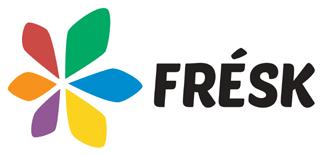

Répertoire complet à FRÉSK ca


Ateliers & Ressources
Bookings : FRESK.CA


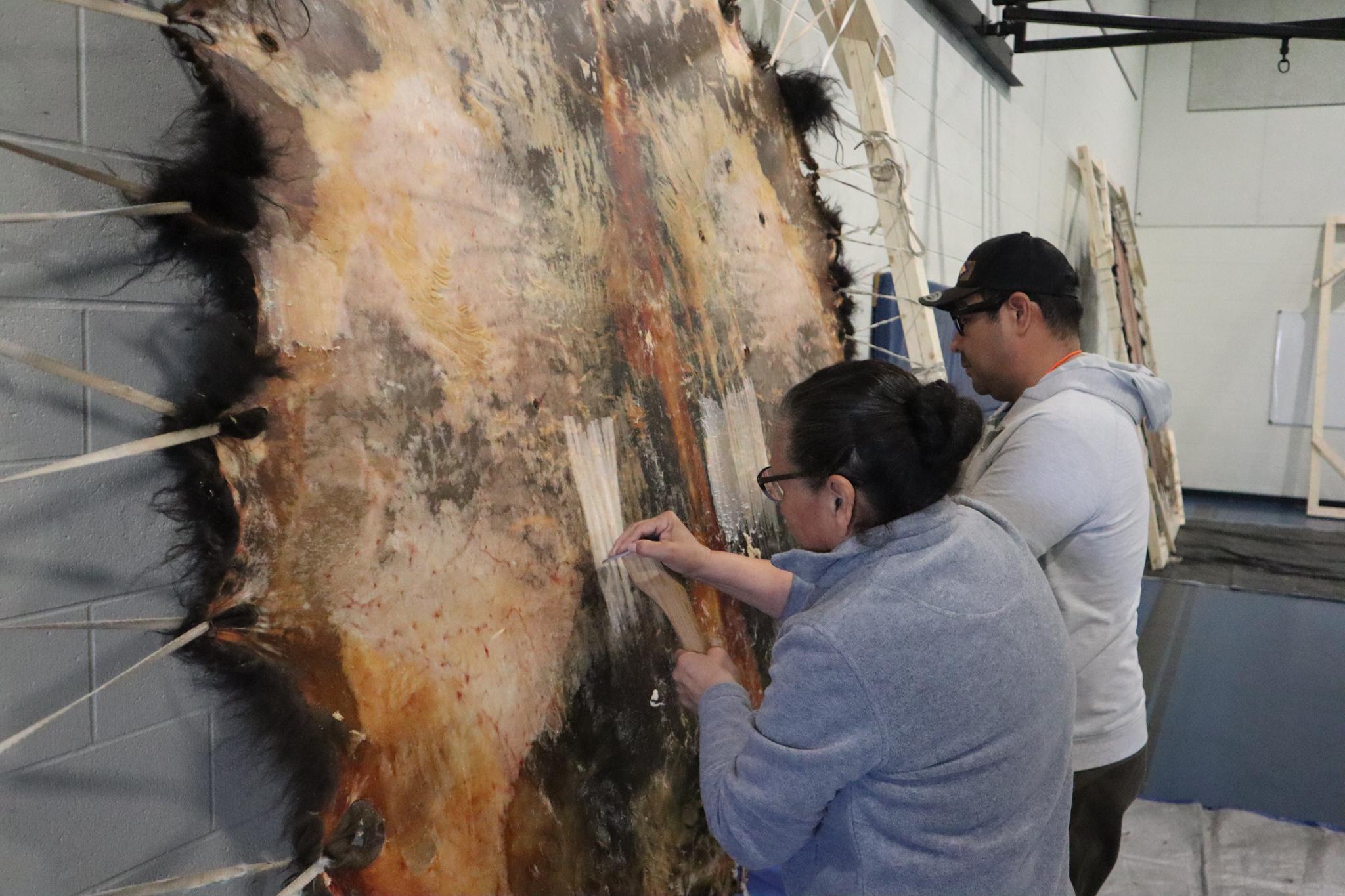
The ILC is designed to help educators develop proficiency in how to speak and teach Cree through Indigenous teaching methodologies. It immerses students in the three dialects of Cree spoken on the Prairies: nêhiyawêwin (Plains Cree), nêhinawêwin (Swampy Cree), and nîhithawîwin (Woodland Cree). The ILC includes ten courses taken over two years and highlights the connection of language to land-based teachings Join our new cohort starting in 2024 - 25





After completing her master’s degree in science, Kairon secured a teaching position at a local college for two years. “I got married, moved to another city, and joined a high school where I taught for 17 years,” Kairon says. She was eventually promoted to vice principal and continued to teach. “I am very passionate about teaching, so I taught biology while also performing my administrative role.”
Kairon’s drive and determination to help her students learn and succeed earned her the award of excellence from the Government of India. “At that time, my Grade 12 students had scored over 90 percent on their
national exams and one of my students had the highest marks in all of India,” she recalls. Other forms of recognition came to her as she did what she loved, including a best teacher award from her local school board.
Kairon and her husband had a son and then a daughter. Time passed and, as her son reached his teenage years, he shared his interest in pursuing post secondary studies in Canada. As much as she loved her work in India, Kairon knew she could not be that far away from her child. “It was then I decided to leave my job in India and travel to Canada,” she says.
In 2023, Kairon walked up to the chalkboard as a licensed teacher for the first time in six years. She was thrilled. “I enjoy it so much. It gives me so much satisfaction when I see the students really understand what I’ve taught them and then solve a math or science problem.”
It was 2017 when Kairon and her family arrived in Saskatoon. “When I came here, I was determined to pursue my career in the field of education. I knew I couldn’t be a teacher right away, so I started as an EA.”
After a successful career in India, starting over wasn’t easy for Kairon. “As an EA I had to sit at the back of the classroom. I would ask myself, ‘What am I doing?’ But the staff were so great, always helping me when I had questions. In my mind I knew I would be a teacher again one day.”
Kairon continued to work as an EA for more than five years, learning from the staff and students at her school. “I remember the students would ask me when I was going to start teaching. I would say, ‘But I am teaching!’ And they would respond, ‘No, when will you teach up there, at the chalkboard?’”
Returning to the front of the class was always on Kairon’s mind. Following the process required of newcomers to Canada, she applied for her teacher’s certificate and completed her Internationally Educated Teachers Certificate at the University of Saskatchewan. She learned about instruction and curriculum in Saskatchewan schools, First Nations and Métis teaching and learning, teaching for reconciliation, and working with exceptional learners. She applied her new found knowledge in field experience supported by a peer facilitator teacher. At the same time, her son was studying computer science at the university.

“I used to tease him that my marks were better than his. We had great laughs about that,” she says.
In 2023, Kairon walked up to the chalkboard as a certified teacher for the first time in six years. She was thrilled. “I enjoy it so much. It gives me so much satisfaction when I see the students really understand what I’ve taught them and then solve a math or science problem. I have a smile on my face when I hear them say, ‘I got it! I know how to solve it!’”
Kairon has returned to visit her parents and family members in India since she moved to Canada. She also keeps in touch with her former teacher friends via video chat. She and her family have adjusted to the Saskatchewan snow and a new way of living. Her daughter now studies math and science at the University of Waterloo.
Kairon says her family in India is proud of her journey and what she has accomplished. “They always tell me that I was born to be a teacher. They could tell from the time I was a child when I pretended to be a teacher playing with my siblings.”
Kairon has no regrets with her move to Canada. She hopes to get a permanent contract in the fall. “I am passionate about teaching science and always try to encourage a love for that subject in my students for their successful learning,” she says. “At the same time, I incorporate moral values in my lessons such as honesty, hard work, love and kindness to shape my students as good citizens for future generations.”

Climate change isn’t just a concern for the planet we live on – it’s also an important issue for school leaders when assessing their school community.
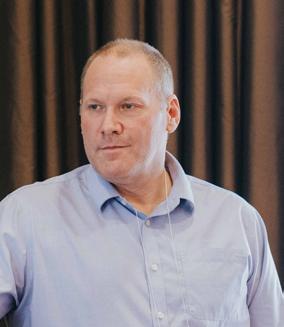
“Lots of people get confused between climate and culture. Climate changes day by day, week by week. Culture is what’s really going on in your schools. Climate is your attitude; it’s what you do in the school. The culture is why you do it,” teacher and education facilitator Dr. Robert Liggett, PhD, told participants during his session, Want to Build an Effective School? Start With the Culture, at the recent STF Leadership Symposium.
Climate varies based on the time of year. Taking the temperature of your school in June is much different than in early September. Culture is consistent; it’s the social glue that holds a staff and school together as they respond to challenges and discover what works best for their community.
“When we are looking at culture, it’s the shared assumptions we have. When everybody says, ‘this worked pretty well; we’re going to keep doing it as a group,’ that’s what a culture definition is,” Liggett says. When making a professional examination of what impacts culture, he noted, it’s important to emphasize the four Cs — cooperation, collaboration, communication and consultation.
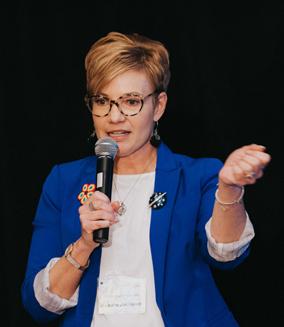
Hillary Ibbott Neiszner, principal of Ethel Milliken Elementary School in Regina, sees leadership as purpose fulfilled with passion.
“I believe that I was called to do this work. I feel it in my heart … that’s what drives me every day and I’m going to guess that most of you feel the same way. Our work is not selfish work. Our work is not about us. Our work is about others,” she tells symposium participants during her session, Life Coach 101: Practical Tips and Tricks to Navigate the Admin Role and Maintain Your Sanity.
School leaders are called on to be many things to many people, and Ibbott Neiszner acknowledged the role goes above and beyond the job description. She encourages leaders to guide their actions using a few basic principles, including the importance of being present physically, emotionally and mentally. The ability of leaders to “be
present” provides opportunities to build relationships and allows staff and students to understand that their leaders care and are listening.
Ibbott Neiszner, who shared her personal path to leadership alongside strategies for navigating and embracing the role, says developing strong connections with staff and students sets up leaders and their school community for success and provides resiliency.
“Build relationships while you are doing the work because we only have so many hours in the day,” she says. “As a leader, we can help people to manage conflict. We can learn to deal with difficult situations; we can model those things and we can wrap around and support them.”
Ibbott Neiszner believes that to be a successful principal and foster a positive school culture, leaders must be authentic — thankful, grateful, honest with themselves and, above all, must do what they love and love what they do.
“If it doesn’t work let’s change it now,” Ibbott Neiszner says. “Why would we waste one whole year doing something that we could change tomorrow? If something is the right thing, if it is right for kids, then we should do it and we should do it now.”
Liggett’s research indicates a strong connection between leadership and culture, with a review of more than 100 years of literature showing how leaders influence the type of leadership possible. Embracing shared leadership and building relationships through communication and collaboration establishes the trust needed to enact change and strengthen culture.
“When I surveyed teachers and principals, they said the biggest thing needed to improve school climate and culture is interdependence built around collaboration. Everyone needs to have a voice; it cannot be top down and it has to be collaborative,” he states. “Teachers need to feel supported. They need to be able to feel they can trust their leadership and that their leadership is going to have their back.”
The second STF Leadership Symposium was held April 11 and 12 in Saskatoon. The symposium supports the professional growth and success of current and aspiring school leaders.
The Saskatchewan Teachers’ Federation Executive, which is elected by Council from its ranks, manages and regulates the activities of the Federation. The members must ensure the organization is acting in accordance with its legislated mandate and fiduciary commitments. Among their responsibilities is the establishment and appointment of members to the benefit plan boards and various committees.

At the Annual Meeting of Council held April 24 to 27, 2024, the following individuals were elected to the Executive of the Saskatchewan Teachers’ Federation.
Executive Member-at-Large
Chris Kampman, Regina Catholic
Executive Member-at-Large
Micheal Hagel, Tri-West
Executive Member-at-Large
Amy Orth, Prairie Spirit
Executive Member-at-Large
Crystal Schindel, Horizon
Returning Executive Members
Two-year term, July 2024 to June 2026
Two-year term, July 2024 to June 2026
Two-year term, July 2024 to June 2026
Two-year term, July 2024 to June 2026
Elected in 2023 to serve a two-year term from July 1, 2023 to June 30, 2025.
Samantha Becotte , President, Lloydminster
Nathan Bromm , Vice-President, South East Cornerstone
Kirsten Fritsch , Creighton
Peggy Welter, Prairie Valley

Amy Korver , Prairie Spirit
Whitney Paul-Joseph , South East Cornerstone
Read about Council final decisions and results in the 2024 Annual Meeting of Council Report to Members. In addition, the Reports to Council, Executive election results and the final plenary resolution and election results can be viewed online at www.stf.sk.ca > About the STF > Our Team > Council > Annual Meeting of Council 2024, when you log in through MySTF.


OurPost-GraduateCertificateinSpecial EducationisrecognizedbytheSaskatchewan ProfessionalTeachersRegulatoryBoard(SPTRB) andwillequipSaskatchewaneducatorsto meettheprovincialneeds-basedapproachof support.Teacherslearninterventionand supportstrategiesandextendtheirknowledge oftheinstructional,programming,and assessmentneedsofstudentsrequiringspecial education.Thisprogramhelpseducators betterunderstandexceptionalstudents' educationalneedsandthepracticalwaysin whichpositiveandinclusivelearning experiencescanbeprovided.
ThePost-GraduateCertificatein SpecialEducationismadeupof5 courses: Required
● SpecialEducationPart1
● SpecialEducationPart2
● SpecialEducationSpecialist Electives(Pick2)
● Teaching Students With Behavioural Needs
● Teaching Students With Communication Needs (Autism Spectrum Disorders)
● Teaching Students With Communication Needs (Learning Disability)
Inadditiontobeingofferedfullyonline,our coursesareflexibleandwrittenbyhighly experiencedsubjectmatterexpertsfrom Saskatchewan.
Tolearnmoreaboutthisprogram,visitusat COURSESFORTEACHERS.CA/SK

For the Saskatchewan Teachers’ Federation, being selected as one of Saskatchewan’s top employers is welcome recognition of the organization’s commitment to cultivating a vibrant and healthy workplace culture. “This is very exciting news for us. Our Executive members feel strongly that it is important for teachers to be good employers and we have made this a priority and a focus at the Federation. This external validation just brings that to the forefront,” says STF President Samantha Becotte. Established in 1933, the STF employs 150 full and part time employees in Canada, including teachers, administrative professionals, design and production experts, pension and benefit specialists and investment professionals, to name a few. This is the first time the STF was considered for recognition in the Saskatchewan’s Top Employers competition.
“We have an amazing group of staff who really understand our purpose,” says STF Executive Director Bobbi Taillefer. “They are teachers and professional staff who understand how they contribute, directly and indirectly, to quality public education. With this recognition, our culture really shines through. Whether it’s mental health support for staff, giving them time off to recharge, reduced hours in the summer or our phenomenal pension and benefits plans, we care about our people because it’s the right thing to do.”
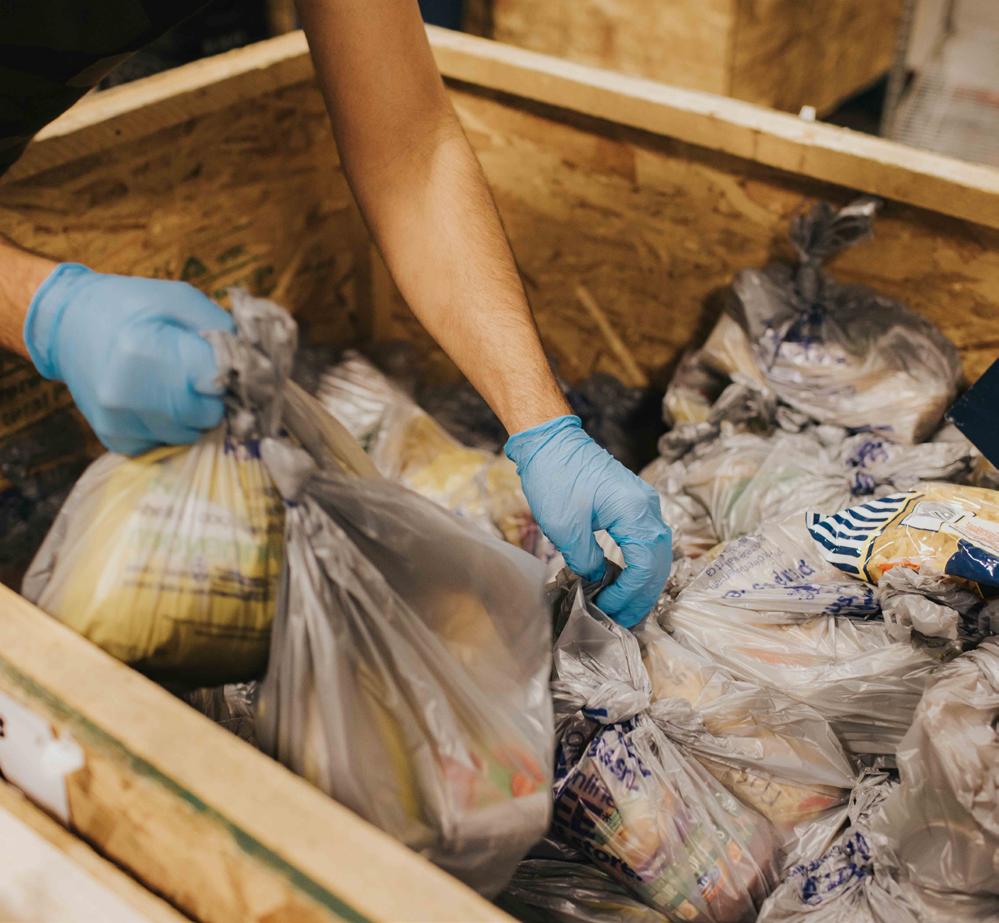

First published in 2006, Saskatchewan’s Top Employers is an annual competition organized by the editors of Canada’s Top 100 Employers. The special designation recognizes the Saskatchewan employers that lead their industries in offering exceptional places to work.
“A recent benefits review placed the STF in the top 95 percentile of organizations in how much they give their employees for psychological services.”
In March, the Federation learned it had made the list and why. Some highlights of the long list of accolades include:
• The STF encourages and facilitates ongoing professional development through courses at outside academic institutions as well as offering in house mentoring, leadership development programs and subsidies for professional accreditation.
• The STF starts most new employees with four weeks of paid vacation and offers additional time off between the Christmas and New Year’ s holidays.
• The STF supports employee mental health through a generous mental health practitioner’ s benefit of up to $2,500 as part of its health plan.
In fact, STF Managing Director, Human Resources Jeremy Ring says a recent benefits review placed the STF in the top 95 percentile of organizations in how much they give their employees for psychological services.
The STF’s approach to flexible work offers employees professional autonomy and empowers them to do their work in a way that best suits them and their more than 13,500 members. “It’s about making sure that our members are taken care of and that our employees take care of themselves,” Ring says.
Being connected to a greater purpose is embedded in the STF’s DNA. “Our staff have experienced public education or have family who are touched by it. They see the work that is being done in our schools and the people doing that important work. If we can make sure our members are supported to deliver quality education, then we can make sure our nieces and nephews, children and grandchildren benefit from that,” Ring says.
Ring says the staff who work with the STF go above and beyond to support the communities where they live and work. “Last summer, employees supported Food to Learn, a partnership with Food Banks of Saskatchewan, by volunteering their time in the garden patch, at the warehouse or through other means of food and monetary donations. We saw clearly that our teams are willing to put up their hand and help,” he says.
The Saskatchewan Teachers’ Federation’s recognition as a top employer honours its dedicated staff and underscores their profound influence on the province’s education landscape.
To learn more about the Saskatchewan’ s Top Employers competition and the 2024 winners, visit https://reviews.canadastop100.com/top-employersaskatchewan-teachers-federation

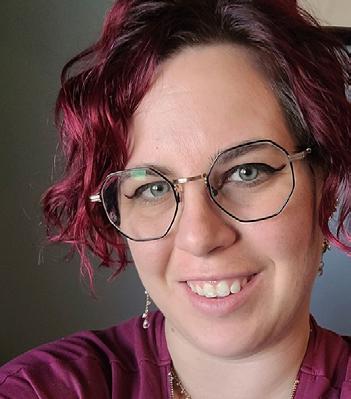
There have been many fights for 2SLGBTQ+ rights in Canada over the last 20 to 30 years, addressing various aspects of society, such as marriage, military service (Nash & Browne, 2019), and prohibiting discrimination based on sexual orientation and gender expression in the Canadian Charter of Rights and Freedoms (Government of Canada, 2023). Despite these successes, fights for 2SLGBTQ+ rights continue in many societal areas. Some of these fights occur in Canadian schools, as school policies have been slower to change than other parts of society (Rayside, 2014), or they regress to removing rights from 2SLGBTQ+ students.
Numerous protests in Canada for “parental rights” have targeted inclusive education (Mason & Hamilton, 2023). This “parental rights” movement has been steadily growing as the inclusionary practices for 2SLGBTQ+ students, such as teaching students about the differences between sex, gender identity, gender expression, and sexuality in age appropriate ways (CTV News, 2023), have increased in schools. These protests began when New Brunswick’s government implemented Bill 713 – Sexual Orientation and Gender Identity in 2020. Bill 713 states explicitly that the preferred name of transgender and non binary students cannot be used without parental consent (Government of New Brunswick, 2023). Bill 713 has been updated twice and now includes that the preferred names of transgender and non binary students can be used without prior parental consent if a student speaks to “appropriate professionals” about a plan to discuss with their parents or talks to a school professional one on one for support. While parts of Bill 713 are set to enhance inclusivity in schools, implementing this Bill has emboldened anti 2SLGBTQ+ groups like Action4Canada (Mason & Hamilton, 2023).
“In Saskatchewan, the structure and safety of GayStraight Alliances are now being threatened by Bill 137.”
Saskatchewan’s response to New Brunswick’s Bill 713 has been to implement their own anti trans legislation, the Government of Saskatchewan’s Bill 137 – The Education (Parents’ Bill of Rights) Amendment Act, 2023. Bill 137 requires students under 16 to gain parental permission to use their preferred names and pronouns in school and does not include Bill 713’s exception for using these preferred names without parental consent. The Minister of Education has stated that the policy looks for “when children are looking to change their name associated with a change in
their gender” (Hunter, 2023, para 11). In other words, Bill 137 is directly aimed at gender non conforming students. In a situation where parental approval has not been gained, the school staff must continue to use their deadname1, regardless of their student’s preferences or gender identity. Deadnaming applies in all situations at a school, including students and educators who are members of the school’s Gay Straight Alliance (also known as a Gender and Sexuality Alliance or GSA).
GSAs play an essential role in creating and fostering inclusive and supportive environments for all students in the school, regardless of their gender identity and/or sexuality. Pinetree Secondary School in Coquitlam, B.C., established the first Canadian GSA in 1989 to support 2SLGBTQ+ students in an educational setting (Stonefish & Lafreniere, 2015). The club was organized by teachers and counsellors, modelled after community support programs, and this club structure continues to this day. Across Canada, GSAs are places where resources for students, teachers and administrators are found to support their 2SLGBTQ+ students and provide the knowledge to implement gender and sexual diversity inclusion in schools.
The first Gay Straight Alliance in Saskatchewan was founded in 2001 at Mount Royal Collegiate in Saskatoon (CBC/Radio Canada, 2005), and the number of GSAs has been growing around the province since. Before the new Parents’ Bill of Rights, Saskatchewan GSAs were places where students could safely perform their preferred gender in an environment guaranteed to be accepting and affirming. Though not all gender non conforming students come out to their GSAs first, they are safe places to do so (Di Stasio et al., 2023). A GSA is a place where students are referred to by their preferred name and pronoun(s), giving those students autonomy over their gender identity and gender performance.
In Saskatchewan, the structure and safety of Gay Straight Alliances are now being threatened by Bill 137.
GSAs emphasize inclusivity for 2SLGBTQ+ students to find support and acceptance, whether from other 2SLGBTQ+ students, allied students, or 2SLGBTQ+/allied educators. These environments welcome all students, regardless of their gender or sexuality (Thompson, 2012). In these clubs, students learn valuable life lessons about diversity, empathy, respect, and acknowledgment of differences and similarities such as racial, ethnic and religious (Meyer, 2011). It is a place where students can find a community by sharing an emotional connection and social support with others in the school (Di Stasio et al., 2023). GSAs can help students connect with the larger 2SLGBTQ+ community by attending or creating events that bring together
community members or other GSAs into the school or organizing field trips to local 2SLGBTQ+ organizations (Bain & Podmore, 2020).
“The nature of a GSA is to develop a sense of community through trust. Students and teachers could have difficulty building trust when students can only present themselves as they wish to be with prior parental approval, …”
Research has shown that GSAs help reduce bullying and harassment for 2SLGBTQ+ and non 2SLGBTQ+ students. Several studies show that when students learn about 2SLGBTQ+ issues at school, there is less bullying, absenteeism, homophobic language and negative gender identity remarks, and an increased sense of school safety (Di Stasio et al., 2023; Morrison et al., 2014; Porta et al., 2017; Russell et al., 2021). Additionally, students in schools with a GSA have reported more supportive educators and school staff, better grades, and less skipping school due to bullying and harassment around their actual or perceived gender identity or sexuality (Porta et al., 2017). This positivity is due to GSAs’ role as a place of education for 2SLGBTQ+ and allied students, educators, administrators and community members. They are a centre for social activism because they are youth led and youth driven towards activism and social change (Stonefish & Lafreniere, 2015). This activism centres around creating a safer environment for all students.
The nature of a GSA is to develop a sense of community through trust. Students and teachers could have difficulty building trust when students can only present themselves as they wish to be with prior parental approval, especially during initial introductions. A traditional way of introducing oneself at a GSA meeting is for people to state their names and pronouns so that others know how to address each other. This introduction format allows for an environment of trust and respect among club members and can also lead to more understanding
1A deadname refers to using the name a transgender or non binary person used before transitioning, usually their birth name.
and conversations around gender identity and pronouns (Hosking, 2023). These introductions can no longer be authentic for gender non conforming students if they do not have prior parental permission to use their preferred name and pronoun(s). Saskatchewan’s Parents’ Bill of Rights prevents students from using their preferred names and pronouns without parental approval, leaving students without the autonomy and “dignity to present themselves in a way that is consistent with their thoughts and feelings on their self identification” (MacDonald, 2023, p. 479). This lack of discussion within a GSA can lead to a lack of language and explanation developed by students and educators on gender identity, pronouns and acceptance.
Places of safety are essential for 2SLGBTQ+ students. The report Still in Every Class in Every School by Peter et al. (2021) states that there is still a greater risk for 2SLGBTQ+ students to struggle with mental health as they face unique challenges that their cisgender, straight peers do not. GSAs provide a support network for students to help improve their mental well being by giving them resources geared toward the 2SLGBTQ+ community (Porta et al., 2017). Additionally, as mentioned above, schools with GSAs tend to have more inclusive school environments, which can reduce the stigma surrounding mental health issues for all students and encourage them to seek mental health help.
Before Saskatchewan’s Bill 137 – Parents’ Bill of Rights Amendment Act, 2023 passed, some students in GSAs were not out to their parents about their preferred names and pronouns (Salloum, 2023). This Bill does not consider these students and does not grandfather them in. Students who are under 16 years of age, who had found safety, acceptance and understanding, and who were being called by their preferred names and pronouns within the GSAs, are now being deadnamed. There is a correlation between positive mental health and when preferred names are used for gender non conforming people (Sinclair Palm & Chokly, 2023). By taking away their preferred names, used with trusted adults and friends within the GSA, this Bill has taken away an essential way for students to articulate their identity and sense of self. I am not suggesting that all gender non conforming students will or have changed their preferred names and/or pronouns. This story relates directly to those who did so in their GSAs before the Bill.
Communities should allow people to grow, learn and develop in a supportive, caring setting with trusted individuals. Most importantly, students need time, support, information and autonomy as they take their time to figure out their sense of their gender and constant revision
can happen throughout this process of development (Diamond et al., 2011). GSAs are supposed to be environments where all the above are provided to students to help them grow into adults. Exploring gender is nearly impossible if students are not given the autonomy to do so, regardless of whether they have parental permission or not. Using students’ preferred names and pronouns is one of the most important parts of gaining students’ trust and supporting their journey (Diamond et al., 2011). It also shows respect towards students and allows them to assert who they are.
Gay Straight Alliances (or Gender and Sexuality Alliances) are not exclusive to any student or group. They are inclusive environments that promote tolerance, understanding, empathy, compassion and a safe student environment. They serve as a valuable resource for both 2SLGBTQ+ and non 2SLGBTQ+ students by fostering a community of acceptance and respect, which benefits everyone in the school environment. The Saskatchewan Parents’ Bill of Rights erodes the sense of community and safety that a GSA offers students by preventing students under 16 years’ old from using their preferred pronouns or names without prior approval from their parents. Students no longer have the autonomy, dignity or right to present themselves in ways that best reflect their internal sense of self. Though the Parents’ Bill of Rights states that the intent is to create more conversations and understanding between students and parents, it does not mention that this is already a goal of GSAs while respecting the rights of the students to self identify. Parents of trans children in Saskatchewan are protesting this Bill (Dayal, 2023), demonstrating their support for their students, and wanting Bill 137 to be withdrawn. These parents understand that Bill 137 goes against the needs of their and other gender non conforming students’ needs and rights. GSAs are places within schools where students can feel safe and respected – Bill 137 has highlighted the importance of this feeling while reducing it in gender non conforming students.
To view the references for this story, please visit our website at www.stf.sk.ca/resource/bill 137 references

More Canadians than ever before have stress in their lives. Luckily, your STF Members’ Health Plan and Member and Family Assistance Plan include benefits to help you cope. Whether your mental health is suffering, you are concerned about the financial impacts of inflation, or you are feeling the physical effects of being on your feet all day, there are many resources available to you. Here are a few ways your plans can help you ease your stress.
Through your benefits, you have 90 percent coverage up to $2,500 per year for counselling with registered psychologists and social workers to help you address anxiety, stress, depression and other mental health concerns.
The MFAP also provides free short term counselling for everyday challenges. At no cost, you can get three to six hour long sessions with a dedicated counsellor who can help you address depression or anxiety, job pressures and other issues that cause you stress.
We can all use tips to make our paycheques stretch a little further. The MFAP has financial experts who are just a phone call away. They can provide support on budgeting, credit problems, investing, saving and much more. You also have access to online financial planning tools, articles and videos to help you manage your money.
Self care can mean different things to different people, but one way to mitigate stress is to look after your body. Your GreenShield Canada health benefits include 80 percent coverage up to $500 a year for massage therapists, acupuncturists, chiropractors and osteopaths, and 100 percent coverage up to $1,000 for physiotherapy. If your spouse has health coverage, you can also submit any remaining balances to their plans.
Diet and exercise are also important factors in lowering stress levels as well as improving your physical health. The MFAP offers exercise and nutrition coaching, with personalized plans to help you reach your goals. It also provides weight management programs to help you lose, gain or maintain weight.
Whenever you are going through a challenging time, remember that the STF has a wide range of benefits to help you. You can learn more about all your health plan benefits and how to access the MFAP by visiting www.stf.sk.ca > Pension & Benefits > Teacher Benefits.


The Emma Stewart Resources Centre has an exciting array of teaching resources. Visit in person or contact us to request materials. The mailout service is free to wherever you are in the province, and we prepay the return postage for you.

BRAIDING SWEETGRASS FOR YOUNG ADULTS: INDIGENOUS WISDOM, SCIENTIFIC KNOWLEDGE, AND THE TEACHINGS OF PLANTS
Adapted by Monique Gray Smith from Robin Wall Kimmerer’s book Braiding Sweetgrass, this volume for young adults illustrates how listening to the plants around us fosters ecological understanding. Beautiful illustrations by Nicole Neidhardt, as well as thoughtful questions for reflection enhance the lessons brought by plant life.


HEARTBEAT OF THE EARTH: A HANDBOOK ON CONNECTING CHILDREN TO NATURE THROUGH INDIGENOUS TEACHINGS
The activities in this handbook by Launa Purcell provide suggestions for instilling the traditional teachings of respect, honour, resourcefulness and humility through meaningful outdoor experiences.

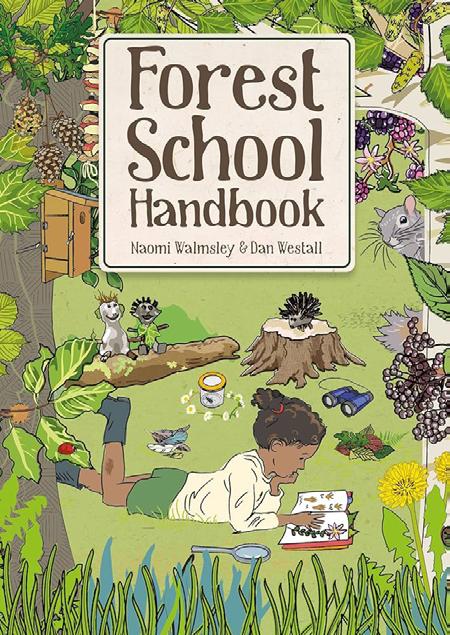

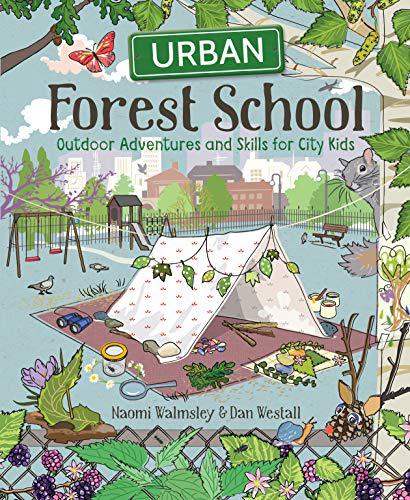
Edited by Margaret Kress, this compilation of scholarly articles discusses traditional ecological philosophies and practices in Canada and around the world.
Delve into the inspirational ideas for outdoor learning and nature based play presented in this practical and well illustrated resource by Naomi Walmsley and Dan Westall.

Explore the key principles, theory and methods of story based nature learning in this collection edited by Alida Gersie, Anthony Nanson and Edward Schieffelin.
Engaging suggestions for exploring parks, gardens and playgrounds are described in this colourful resource by Naomi Walmsley and Dan Westall. Crafts, games and recipes for all ages are also included.

From sports to the arts, teachers give their time and expertise by volunteering for extracurricular activities. In this miniseries, we’ll meet some of those teachers and find out why they take on these volunteer opportunities.
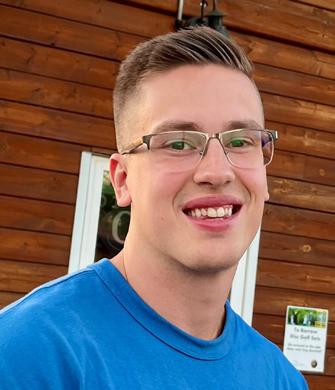
HERBERT SCHOOL, HERBERT
Frank teaches at Herbert School where he also serves as the athletic director. He and his wife live in the community, where they own a gym offering special rates for students. Frank sees the importance of youth developing positive, healthy habits when they are young. “They need extracurricular activities to develop those habits and learn positive goal setting and achieving. Too many teens go to drugs, alcohol and vaping because they have no purpose in their lives.” Herbert coaches volleyball, basketball, badminton and track, having volunteered 350 hours in the past few years. “I like working towards a goal and teaching my team the importance of goal setting. Whether it’s a medal at provincials, a district banner, or simply making that first overhand serve over the volleyball net, students need positive goals to build confidence and healthy bodies. When you can help facilitate these great memories for students, you can leave the season knowing you made a positive impact.”
ST. BRIEUX SCHOOL, ST. BRIEUX
Tate has been teaching for nine years, all at St. Brieux School. In that time, he has volunteered as head coach of the senior and junior tackle football teams and the senior girls’ flag football team. Tate also helps coach the junior and senior golf teams and worked with the school principal to kick off the school’s first ever football program five years ago. Tate relishes the chance to be involved with sports that he loves, and to pass along skills and a love of the game to a new generation. “There is nothing better than seeing students succeed in a sport that they put so much work and determination into. In a world that is more and more online, it helps to disconnect and get kids active and promotes healthy exercise.”
MINISTIK COMMUNITY SCHOOL, CUMBERLAND HOUSE
Aaron has worked as a teacher, vice principal and now principal at Ministik Community School in a span of 18 years. He volunteers his time for cross country running, volleyball, curling and basketball and is an official and fan of the school’s football program. Aaron appreciates the values and discipline that students learn from sports, helping them to become well rounded citizens. Aaron has a passion for volunteering and sports education. “It helps me build connections with students to follow our Mino pimatisiwin values, which means ‘living a good life’ in Cree. I believe their involvement in these activities builds character and well rounded students. It sets up students for success in life.”

PARADISE HILL SCHOOL, PARADISE HILL
Allison has been a teacher for 30 years in a variety of subjects and Grades K to 12. Allison coached boys’ and girls’ junior and senior volleyball and cross country, and taught drama and choir. She advised student council, helped with graduation, coordinating Christmas and Grandparents’ Day, as well as spring concerts. She served on the local teachers’ association executive. As a child growing up and going to school in a rural community, she benefited from teachers who volunteered for extracurricular activities. “I wanted to give back what I had received from my teachers, share my love of sports and the arts with my students and help build relationships, which I feel is the most important part of our job.” Allison is a firm believer that extracurriculars promote a lifelong healthy lifestyle, giving students a place to learn leadership, perseverance and teamwork.

We’re on a mission to transform our digital services, and we want YOU to be part of the journey!
Help us build a website that caters to YOUR needs and YOUR priorities.
Scan the QR code or visit www.stf.sk.ca/website-renewal to learn more about the project, follow along with results from our consultations with members and see how you can make a real difference in the future of the STF website.
ECOLE ST. MARY HIGH SCHOOL, PRINCE ALBERT
Nathan has been teaching since 2004 and has enjoyed getting to know hundreds of students and staff along the way. As a volunteer, he has helped coach volleyball, curling, track, basketball, cross country and badminton. Nathan also spent time in leadership roles on the local high school athletics board and helped host large events in Prince Albert. Nathan remembers benefiting from staff members who got involved in extracurriculars when he was a student. “It made school fun for me. I believe the role of a teacher extends outside the classroom – I know the impact I have on students is felt beyond the walls of a math or science class. Sometimes it means students get to experience things like post secondary sport and sometimes it means students avoid being part of a gang. There is a wide range of benefits for teachers to get involved, none more valuable than creating life changing experiences for youth.” Nathan says that without extracurricular, the heartbeat of the school is simply not the same.

Over the course of the past several years you likely have heard a lot of buzz in early education spaces about the science of reading and how reading instruction is changing in the classroom. Rallying cries have been heard for more phonics, less phonics, whole group instruction, small group instruction, benchmark assessments, screening assessments, decodable text reading, authentic text reading, and the list goes on. Watching the pendulum of opinions swing back and forth is enough to make a teacher’s head spin!
SO, WHAT IS ALL THIS BUZZ ABOUT NEW WAYS TO TEACH CHILDREN TO READ? IS READING REALLY CHANGING?
Well, it likely comes as no surprise to teachers that this news is not all that new. The National Reading Panel released its report in 2000 synthesizing a large meta analysis of research on reading instruction that highlighted the key components of reading instruction and highly effective practices for each component including phonemic awareness, phonics, fluency and comprehension. This panel made recommendations regarding instruction, but as with most things in education, the shift from research to classroom application was not instantaneous. Another research synthesis featured in the American Educator Summer 2020 edition, a publication of the American Federation of Teachers, called Teaching Reading Is Rocket Science by L. Moats later followed and gained more traction in moving research based practices into classrooms. Moats argued for more robust teacher education in all components of reading instruction (phonemic awareness, phonics, vocabulary, fluency and comprehension) along with resources and assessments that are efficient and reliable for each.

In terms of classroom application, you may want to view this movement in reading instruction as more of a shift in focus, as opposed to a pendulum swing or a throwing out of current practices.
Research indicates that, in our earliest grades, reading instruction should focus more heavily on the skills of phonemic awareness, phonics and decoding in an explicit and systematic manner, but that instruction in all components of reading is still critical for every student. As students become more proficient in those foundational skills, the instructional focus will naturally shift to more time spent on the other key components.
Along with this, teacher decision making around whole group and small group instructional focus should also shift in terms of the types of assessment tools used to collect data for all five of those components. In the past, large scale benchmarking assessments would provide some data regarding reading level, most often giving a measure of fluency and comprehension, but could not provide enough detailed information in terms of phonemic awareness, phonics or decoding skills to allow educators to plan for instruction inside of each benchmark level. Efficient and targeted assessment tools for phonemic awareness and phonics can give teachers the information needed to meet the needs of all students more effectively and help ensure that those students most at risk for reading acquisition are not missed.
In the end, the big picture of reading is so complex it really might seem like rocket science!
If you are considering shifting your practices in the areas of phonemic awareness or phonics instruction, consider the following critical components for high quality lessons, adapted from 7 Mighty Moves by Lindsay Kemeny (2023).
• Lessons should follow a defined scope and sequence, be interactive and have a lively pace.
• Phonemic Awareness Practice: oral recognition, blending and segmentation practice with sounds and words containing previously taught grapheme phoneme correspondences.
• Introduction of new grapheme phoneme correspondence.
• Read words with new GPC using scaffolding as needed in modelled and shared reading strategies such as connected phonation, echo reading and/or choral reading.
• Word work (blending and segmenting) new GPC using word chaining dictation and manipulatives such as letter tiles, Elkonin boxes or whiteboards.
• Read connected decodable texts to allow students to practice the new GPC in context. (Extend this practice into authentic texts as soon as possible.)

So, the misconceptions around the Science of Reading being a program that promotes a phonics only approach really should be put to rest. Burkins and Yates share some key points in their book Shifting the Balance (2021) which may be helpful to teachers when communicating their shifts in practice with families, school leaders and community members.
The term “science of reading” represents a continually evolving body of research.
The science of reading is a multidisciplinary field that encompasses research from various domains, including cognitive psychology, linguistics, education, neuroscience and language development.
The science of reading informs educational practices, aiming to ensure that all individuals, including children with reading challenges, have the opportunity to become proficient readers.
Key components within the science of reading include phonological awareness, phonics, vocabulary, fluency and comprehension.
“This we know: reading failure can be prevented in all but a small percentage of children with serious learning disorders. It is possible to teach most students how to read if we start early and follow the significant body of research showing which practices are most effective…. It is our nation’s dedicated teachers and their excellent teaching that will bring the rocket science that is research based reading instruction to schools and classrooms across the country and will unlock the power and joy of reading for our children.” – Louisa C. Moats, Teaching Reading Is Rocket Science, 2020.
Burkins, J. and Yates, K., Shifting the Balance, Grades K-2: 6 Ways to Bring the Science of Reading Into the Balanced Literacy Classroom . Stenhouse Publishers, Portsmouth, NH, 2021.
Kemeny, L., 7 Mighty Moves: Research-Backed, ClassroomTested Strategies to Ensure K-to-3 Reading Success Scholastic Incorporated, New York, NY, 2023.
Moats, L.C., Teaching Reading Is Rocket Science: What Expert Teachers of Reading Should Know and Be Able to Do. American Federation of Teachers. Washington, DC, 2020. www.corelearn.com/wp content/ uploads/2020/06/moats.pdf
National Reading Panel, Teaching Children to Read: An Evidence-Based Assessment of the Scientific Research Literature on Reading and its Implications for Reading Instruction, 2000. www.readingrockets.org/ sites/default/files/migrated/NRP 2000.pdf

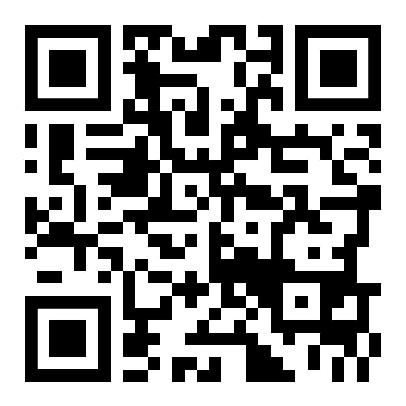

When Saskatchewan’s Ministry of Education announced that starting in 2024, Grade 10 students would be required to take a financial literacy course, Sherry Gao was thrilled! Gao, a pension technician with the Saskatchewan Teachers’ Federation and former sessional lecturer at University of Saskatchewan’s Edwards School of Business, is a financial literacy expert who says a few basic finance skills can make big impacts in your life. Financial literacy comprises the skills and knowledge to budget, save, repay debt, invest and make purchases.
“Many families and students don’t have enough resources to help them navigate financial literacy and they may only learn by making mistakes. If we don’t talk about it, we won’t get the education and information we need. It’s not just about money; it’s about providing the best for you and your family,” she says.
From the time she was a child growing up in Xian, China, Gao knew that managing money was important. Her parents, who are both bankers, spoke to her about saving for her education, about the importance of jobs with pension plans and investing in rental property as a supplemental source of income.
“It’s not rocket science. It’s very relatable to other planning we do in our lives. We just need to understand the financial information and we may need help from tools and resources,” says Gao, who has a bachelor’s degree in economics from Zhejiang University and a master of science in finance from the University of Saskatchewan.
There are many online resources available to help, including free personal finance courses from McGill University and the Government of Canada to learn strategies to use for saving, debt repayment, home buying and retirement planning. There are free tools to create budgets, estimate mortgage and car loan payments, compare RRSPs and tax free savings accounts, and more. Gao recommends having a few basic financial literacy skills, including setting financial goals, creating a budget and making long term financial plans.
“It might sound like it’ s way too soon, but you have to be prepared for retirement from your first paycheque.”
Setting specific, measurable financial goals is an important aspect of integrating financial literacy into your life. Goals can be short term, saving for vacations or paying off credit card balances, or long term, such as saving for your children’s post secondary education or paying off a mortgage. They will vary depending on your stage of life and your priorities. For recent graduates, the goals could be paying off student loans

or buying a car. Someone in their late 20s or early 30s could be considering home ownership. Later in life the goal may be having a comfortable retirement by a certain age.
“Giving yourself goals can provide a clear picture of where to allocate your money. Setting goals is not just a to do list, but a motivation. You know you will have a pay off after the hard work,” says Gao.
To achieve financial goals, a budget is essential. This means measuring your expenses against your income to ensure you are not spending more than you can afford. Gao suggests listing how much you spend on housing, transportation, groceries, insurance and other expenses each month and comparing it to the income you bring in from your paycheques and any other revenue sources.
“Don’t feel guilty if you find you’re spending too much or you’re not making enough. It’s about being honest with yourself. Only when we know the accurate information can we make informed decisions and improve our financial health. If you are expecting a deficiency, you can look at ways to cut back spending,” she advises.
Gao started budgeting in university and quickly realized she was spending too much on Starbucks and collecting Squishmallows. With a budget, she learned to curb her spending to fit within her means, while still occasionally enjoying a fancy coffee or adding a stuffy to her collection.
“By checking my cash flow and having a budget, I had the confidence to give myself a guilt free fund. I can treat myself, but I can also be responsible with my finances,” Gao explains.
As for long term planning, Gao says it’s never too soon to start saving for retirement. STF members have a very good
• Create a budget that tracks your income and expenses.
• If financial literacy seems overwhelming, start with small steps, such as making goals of saving $50 a month or paying an extra $50 a month on a credit card.
• Repay outstanding short term and high interest debts, such as credit cards.
• Set up an emergency fund with enough money to cover three to six months of living costs.
• Start saving and investing to supplement your workplace pensions and adding voluntary contributions to pensions.

pension plan with the Saskatchewan Teachers’ Retirement Plan, but she suggests supplementing it with voluntary contributions, an RRSP, a tax free savings account or other investments. Gao says there are other factors to consider, such as parental leave purchases, educational leaves and when to retire. Voluntary contributions are an easy way to invest more money for retirement, especially when most people’s lives are already busy and there is little time to analyze stocks and bonds.
“It might sound like it’s way too soon, but you have to be prepared for retirement from your first paycheque,” she says.
Gao also has some other recommendations. She urges caution when using credit cards, such as maxing them out or borrowing cash from them because they have high interest rates and can take a long time to pay off. She also recommends avoiding payday loans, too, which have exorbitant interest rates and fees. Finally, she says it’s important to use credit carefully as a tool to build up your credit rating. This means paying off your balances and not missing payments so that you’ll have access to more credit in the future.
Gao is a financial literacy expert, but she understands some people may find the subject intimidating. She hopes the Grade 10 course helps change that and people will start speaking about finances more openly, the way her parents did.
“I don’t think we need to be shy talking about money or financial literacy. Parents and teachers can set kids up for success by discussing it with them. Otherwise, they won’t get the education and information they need,” she concludes.

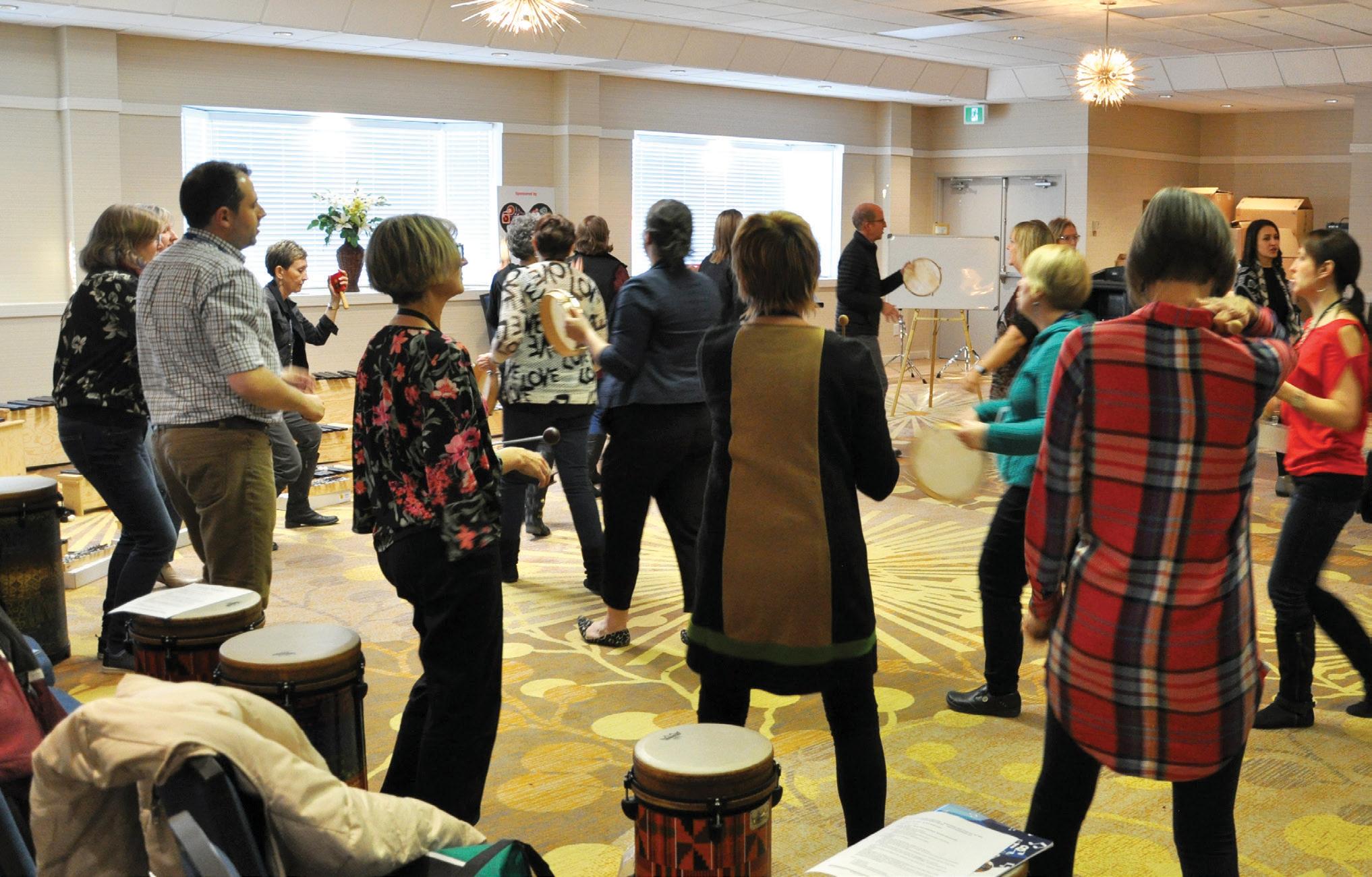

The Saskatchewan Music Educators Association (SMEA) is one of the STF’s Professional Growth Networks. SMEA provides professional development opportunities for music teachers and educators in the province by providing workshops, resources and connections with clinicians to improve students’ experiences with music.


Outstandinginstructors,research-based courses,andanunparalleledlevelofpersonal supportcombinetomakethedifferenceyou expectfromoneofCanada's leadinguniversities.
Four French immersion teachers from Saskatchewan shared their innovative ideas and experiences at the Association canadienne des professionnels de l’immersion (ACPI) National Conference in Saint John, N.B., this past November. Centred on the theme Immersion: Flagship of Bilingualism, the conference attracted more than 600 participants and featured more than 50 workshops and 60 different exhibitors offering the best tools and services for today’s educators.
Jaclyn Reaves Jacobson and Kim Thomliston teach at École Centennial School for pre K to Grade 8 in Swift Current, Saskatchewan. Their workshop offered practical and proven ideas for helping students with their writing skills.

Thomliston says their goal was to have everything ready for teachers so they could easily put it in place in their classrooms the following Monday.
“We shared ideas that have worked for us, ones that really engage our students,” Thomliston says. “The idea of pre writing was popular with delegates. It encourages students to do some planning ahead of time using a simple
framework so they can take their ideas and put them into their writing later. We also talked about different ways to publish their ideas.”
Thomliston says their goal was to have everything ready for teachers so they could easily put it in place in their classrooms the following Monday.
Reaves Jacobson, a mother of two French immersion students and vice president of Canadian Parents for French Saskatchewan, says being a presenter and participating in the conference was an invaluable experience.
“It offered us the opportunity to help students foster their identity as a bilingual person and to appreciate the French language and culture,” Reaves Jacobson says. “You can make different connections by learning a second language; there are more opportunities for jobs and travel. It can open so many doors if you want it to.”
Cara McDowell teaches French in Yorkton, in the Christ the Teacher Catholic Schools division. McDowell and her colleague, Susan Barton, a tech coach for the division’s nine different schools, facilitated a workshop called: Five Software Programs to Change Your French Language Teaching, Offering Innovative Ways
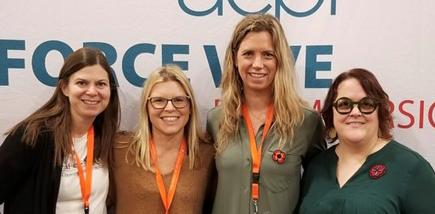
of Applying Technology to Teach a Second Language With Real Life Examples.
The two grew up together in Saskatchewan and often exchange ideas for integrating technology in their classrooms. “We know how difficult it is to find resources when you teach French immersion. We’ve had so much success with our students that we wanted to share with others who are facing the same challenges,” McDowell says.
Barton says it was important to find out how comfortable the workshop participants were with technology. “We were surprised the group used technology all the time, so we offered practical examples based on our own experience using tools like Adobe Express, Flip and Padlet,” she says.
Barton shared her recent experience with a read aloud book, Six Dots: A Story of Young Louis Braille by Jen Bryant. Using their notes, students completed three different assignments. The first assignment was a book trailer video.
“That was really fun,” Barton says. “They were able to add music and they used their own voice in the video. When kids can use technology, they are less scared to speak another language. It gives them lots of opportunities to try it over again.”
Using word art, students chose adjectives that described the character of Louis Braille. Then they put those adjectives into a word art software program and created a visual representation. The third assignment involved using the book to identify new words they had discovered using a program called Padlet.
“Lots of teachers told us that they left with lots of good ideas they could use right away,” McDowell says. “Participants evaluate the more than 50 sessions and ours was in the top 10!”
Reaves Jacobson, McDowell and Barton are now on the planning committee for the next convention to be held in Regina. Immersion: A Horizon Without Borders (www.acpi. ca/evenements/congres/), takes place November 7 to 9, 2024. Registration begins in May 2024.
“Sometimes, teaching in French can be isolating. The convention is like a great big family gathering where you can share resources and make professional networking connections,” Jacobson says.

Every STF member is eligible to join a professional growth network to connect with like-minded educators. With more than 20 networks available, there is a PGN to support your professional growth!
Between June 1 and September 15 members can pick a PGN for the first time or change their selection for 2024-25.
First-time PGN members will be entered to win an iPad. Draw takes place September 16.
Scan the QR code or visit www.stf.sk.ca to see the full list of PGNs and make your selection!
Ask your school staff liaison if you need assistance.
More than one million youth across Canada have benefited from an exciting project launched in 2018 called The Power Within. Thanks to a public private partnership with Plan International Canada, Women and Gender Equality Canada, Unilever Canada, the Canadian Teachers’ Federation and other partners, The Power Within has been helping young learners deepen their understanding of the origins of appearance ideals and develop strategies to build their body confidence through free training and resources created for teachers, parents, caregivers and young people, and through a virtual online community.
“With this project, we wanted to support youth in developing their body confidence and self esteem so they can take up more space, step into leadership positions and feel more confident advocating for whatever they may be passionate about,” says Lauren Adams, manager, youth engagement, for Plan International Canada.
PIC is a member of a global organization that stands with children, especially girls, wherever they are oppressed, exploited, left behind or not equally valued. Three years ago, the organization joined forces with the Canadian Teachers’ Federation and other partners to bring The Power Within to life. “We realized there are natural synergies with CTF FCE, including the work we do domestically and internationally,” Adams says.
“Our role has been to sit on the steering committee, offer insight and feedback on objectives and materials and amplify the message using our networks and platforms,” says Wes Delve, program officer, international and social justice program, CTF FCE. “Key to this project’s success is the fact that it’s based on relevant research and involves the voices of so many talented youth in our country.”
The project involved building on Dove’s 2012 Self Esteem Project programming with a Canadian context. Youth voice is woven into the fabric of the initiative as members on the steering committee, task force and as designers of curriculum and implementers of the project.
The cornerstone of the project is a single session workshop called Confident Me in which students are invited to answer questions such as “Who am I?” and share how appearance ideals have caused stress to themselves or someone they know. Educators are encouraged to share their own experiences and validate their students’ experiences, respecting local culture and unique perspectives and differences. Together they discuss appearance ideals and beauty standards communicated in traditional and social media and by influencers. Students are invited to consider actions they’ll take to address the pressures they and their friends feel to look a certain way.
An additional series of five workshops goes deeper and focuses on appearance ideals, media messages, confronting comparisons, banishing body talk and being the change. Teachers guide conversations about harmful messaging and images in advertisements and on social media, and how youth can use what they learn to challenge those messages.
Adams says it is important for young people in rural and remote communities with limited internet access to have the opportunity to participate. “We created the training so it’s easily accessible. It’s low tech: you can print out slides or you can use a journal. There are many tips in the educator guide so they can deliver it wherever they are with whatever time they have.”
The 2017 Dove Global Girls Beauty and Confidence Canada Report found that 52 percent of Canadian girls aged 10 to 17 say they do not have high body esteem; and, nine in 10 Canadian girls with low body esteem will avoid important activities such as engaging with friends and family, participating in activities outside the house, and trying out for a team or club.
A Girl Guides of Canada Guides du Canada survey by Ipsos (www.ipos.com) found that 59 percent of girls feel pressure from society – through the media, social media, friends, parents or teachers – to conform to unrealistic standards about what it means to be “a girl,” and 55 percent say that trying to meet social expectations about how they should look or act has negatively impacted their self esteem (this is strongest among heavy users of social media at 71 percent).
At a recent summit held in Toronto, youth, educators and partners gathered to share their experiences with the workshops and resources offered through The Power Within. One young participant shared: “After these programs I feel very good about myself. I feel that I am not alone and that I can talk to the girls here about everything.” Another said: “I like coming here because we are all the same and we all listen to each other, and we can talk about these problems together.”
The response from youth, educators and partners involved in the project has been so positive that plans are in the works to expand and grow, involving more school boards and more partners across the country.
“Plan’s [[Plan International Canada’s] research prior to developing the program showed that it is mainly girls and non binary youth that are most affected by body confidence and self esteem, especially those located in rural areas, newly arrived Canadians and historically disadvantaged groups,” Delve says. “Because Saskatchewan has such a high rural population and so many newly arrived Canadians, I think this program is ideal for the province’s teachers and their students.”
“We know that teachers have a lot that they’re responsible for and they have so much to achieve in their classrooms. If they offered even one of the Confident Me sessions in collaboration
with another classroom, just bringing these young together to experience the conversations that come up will be a beautiful experience for them,” Adams says. “We’re also hearing from educators that they’re learning so much by creating the space to have these dialogues in the classroom.”
“Facilitating Confident Me workshops has really reinforced how great the need is for youth to learn about body confidence. I’ ve witnessed students open up, share, learn they aren’t alone and support each other. I’ve heard students sound more confident with themselves toward the end of the workshop. In a world where youth mental health is impacted because of what’ s said and shown in the media, these conversations are needed.”
– Facilitator, Confident Me Workshop
Adams says there are numerous resources available for teachers, parents and caregivers, so that parents can continue to support their children with these conversations. “If they give it a chance, they’ll see right away the powerful impact it can have.”
For more information or to learn how to bring The Power Within to your school, visit www.plancanada.ca


Teachers are amazing. They bring passion, expertise, professionalism, patience and kindness into their classrooms every day, and give their whole hearts to helping students thrive. We want all teachers to know how much their dedication means to the students and families they support.
This spring, we asked people to share their thanks for a teacher who made a difference in their lives or the lives of their families. Here are just a few highlights from the hundreds of submissions we received.
“My children all enjoyed a Saskatchewan education. My son has Down syndrome and requires special help. Knowing he finds that help and care in the regular classroom with his peers means everything to his mother and I. Thank you for giving my son a social life.”
“We are so blessed to have amazing teachers supporting our kids in school every day. Their passion for the work they do is unmatched. When our kids are excited to go to school every day and come home with dreams of being teachers one day themselves, you know they’re really making a difference. Thank you, teachers, keep up the great work and continue advocating for education for all.”
“Coming from a small town I believe my high school teachers did the most amazing work in helping us succeed. These teachers would take time out of their days to talk to us and make us feel seen. They were available 24/7 for our questions or to just have a nice chat. These teachers are the reason I’m in university to get my teaching degree!”
“As a newcomer from Ukraine we were hosted by a teacher and her family. Along with her, all the teachers who have been helping my son, who is now in kindergarten, have been very nice – and relatable. This is very appreciated.”
“Navigating parenthood is tough. Kids and families face untold, varied challenges. Knowing that our kids get the support of caring, dedicated teachers means the world to us as parents.”
“I want to send a huge thank you to all teachers that spend hundreds of unpaid hours every year so our kids can enjoy extracurricular activities that in some cases turn into careers for the student. I also challenge the government to show me any other career where these kinds of hours are volunteered with no compensation, solely by teachers for the love and support of the students.”
“I strongly believe that teachers are more than educators; they are mentors, guides and inspirations.... In today’s world teachers also provide a safe space for students who come from complicated homes. Their dedication and commitment are invaluable in shaping a brighter future for us all.”
“There have been so many amazing teachers in my children’s lives. The Supportive Environment teachers who taught my son, who is on the autism spectrum, academic and self-advocacy skills that set him up for long-term success. They have stayed in touch and ask about him even as he is about to complete his first degree. Also, I want to thank the many talented music teachers who always gave my children a safe space to shine and explore their talents. The countless hours they volunteered for concerts and trips, extra clinics and so much more. You are the heroes of education who make our communities stronger!”
“Navigating parenthood is tough. Kids and families face untold, varied challenges. Knowing that our kids get the support of caring, dedicated teachers means the world to us as parents. We’ve encountered so many teachers that have made our day-to-day challenges easier. Their kindness and dedication are unmatched, and we appreciate them so much.”
“I do not have children in school. I do not have grandchildren. I want to thank every teacher for all they do. We are, as a society, very fortunate to have public schools.”
“I am the grandmother of 11 grandchildren, all going to various schools in towns and cities in Saskatchewan. All are unique and require many different approaches to all their learning needs. Thank you to the patient, knowledgeable teachers who give them skills for life. Thanks for giving your free time to coach sports and lead them in drama classes. You give them hope and excitement for their futures. I am so proud of my grandchildren. I am so grateful for the teachers we have.”
“We are so blessed to have amazing teachers supporting our kids in school every day. Their passion for the work they do is unmatched. When our kids are excited to go to school every day and come home with dreams of being teachers one day themselves, you know they’re really making a difference. Thank you, teachers, keep up the great work and continue advocating for education for all.”
“There are so many teachers that make a difference. I think of the teachers that support our medically fragile students, do this-and-that work in community schools and see the effects of inter-generational trauma, and those teachers that work as mentors to support pre-service teachers. I know that teachers spend their own money to fund the education of the children they teach. Teachers are amazing.”
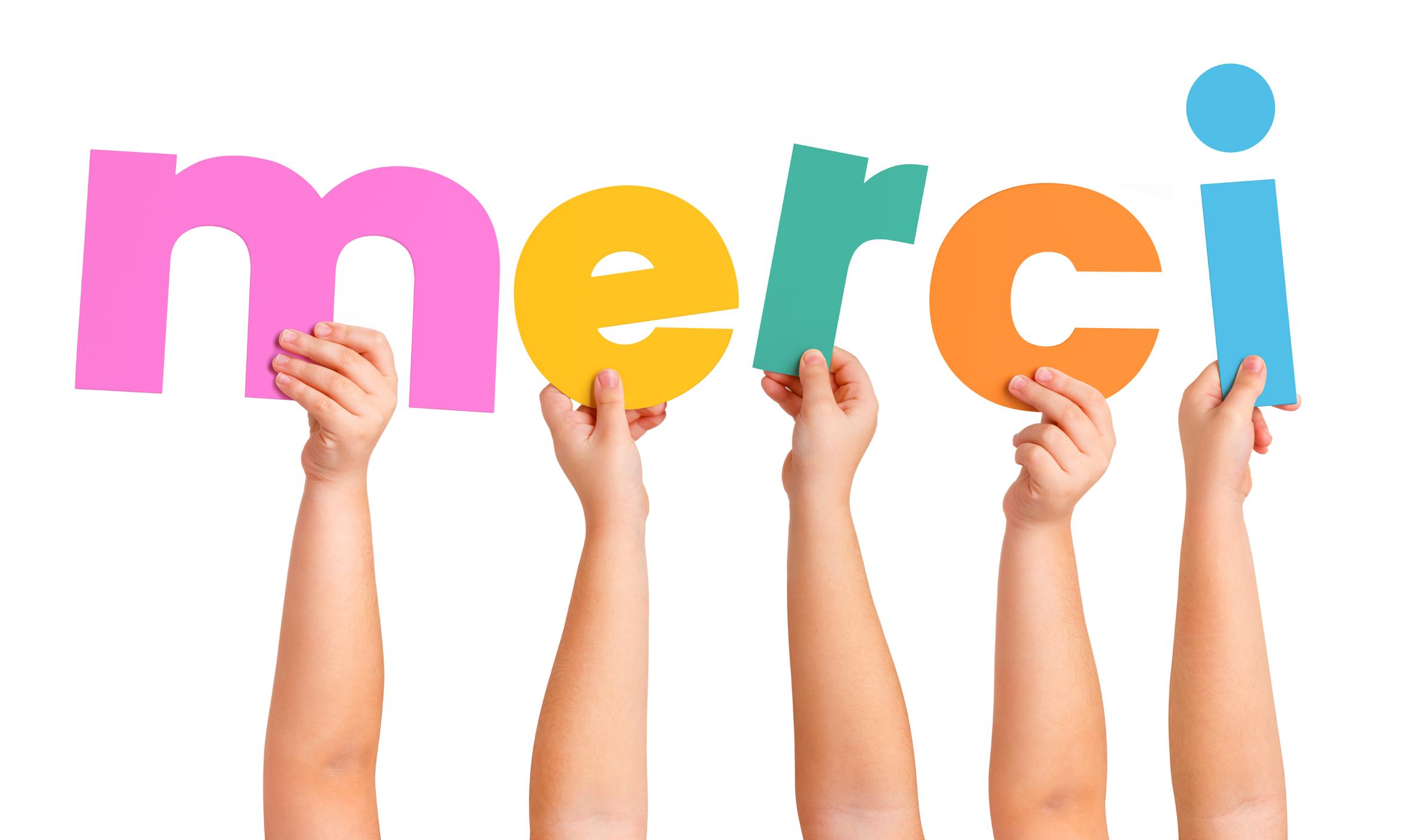

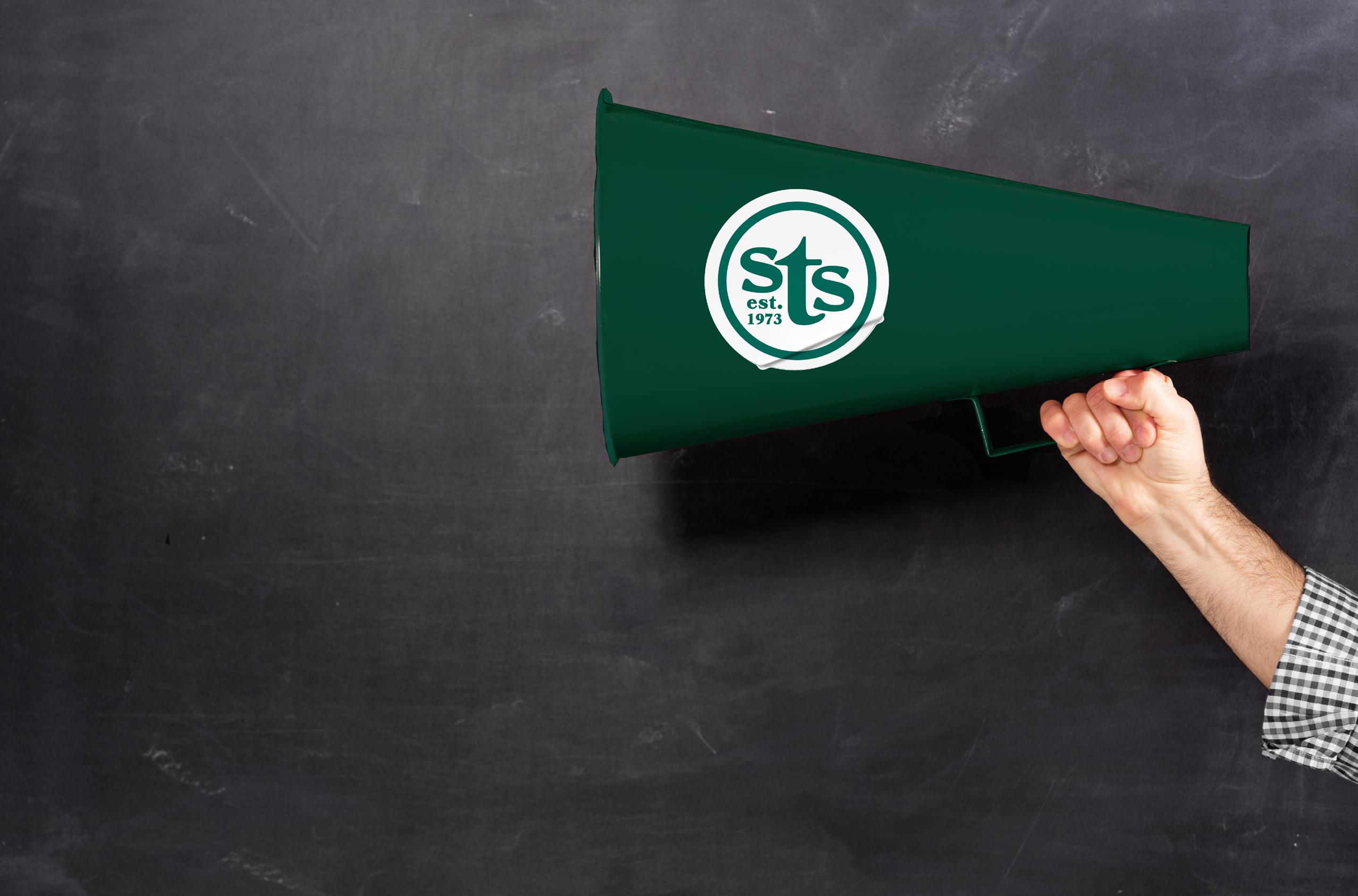
For more than a year the Saskatchewan Teachers’ Federation has been asking government to recognize and respond to the state of education in Saskatchewan. A powerful movement of people have joined together to show their support for the province’s teachers and for a better way forward. Among them are hundreds of retired teachers who have lent their voices and experience to the STF’s advocacy work on behalf of its members.
At the Superannuated Teachers of Saskatchewan’s Annual General Meeting on May 9, 2024, members voted on a resolution to donate $100,000 to the STF to support ongoing advocacy work. “There were more than 200 members in attendance and their support for this was overwhelming,” says Doug Still, president of the Superannuated Teachers of Saskatchewan. “Not only is this a way for our entire organization to support the important work of the STF, but it also recognizes all of those individual actions by retired teachers during the bargaining process.”
“Not only will this generous donation continue to advocate for better public education in Saskatchewan, it is yet another show of solidarity within the teaching profession. From rallies to meetings with government officials to
“Retired teachers have tremendous credibility that comes from their deep experience working in the public education system. The support STF members have received from retired teachers has strengthened our determination and resolve. We know we are not alone.”
Here are just a few of the ways retired teachers joined the STF’s advocacy efforts during negotiations. And we know there are more!
• Rally for Public Education at the Saskatchewan Legislative Building in Regina – The Rally for Public Education was a public call for the Government of Saskatchewan to address chronic funding shortfalls and attracted more than 3,000 people. Retirees participated in the planning committee, helped to secure guest speakers, joined sign making parties and attended the rally.
• Mini Rallies – Retirees helped make posters and signs and joined thousands of parents, students, concerned citizens, and local and provincial media at mini rallies in North Battleford, Moose Jaw, Humboldt and Saskatoon.
• Sit in at Education Minister’s Office – A small but mighty group of STF representatives, teachers and retired teachers staged a sit in at Battleford’s MLA Jeremy Cockrill’s constituency office to ask that classroom size and complexity be recognized in the bargaining mandate.
• Public Accounts Committee, Saskatchewan Legislature – In February 2024, close to 40 people sat in solidarity at a meeting of government’s Public Accounts Committee where the Ministry of Education defended its proposed budget for the coming year. The group included retired and substitute teachers. STF Senior Advisor, Government Relations Ian Hanna said, “It was an excellent reminder to members of the Public Accounts Committee that people are watching and those with experience in the education sector will hold them to account.”
• Retirees also showed their support during the opening day of the Saskatchewan legislative session, at demonstration sites during strike days, and by sending emails and letters on their own and via STF’s Tell Them Tuesday campaign and sharing information on the STS Facebook site.
committee work, retirees demonstrated compassion for their colleagues and spoke with courage and determination about the issues,” says STF President Samantha Becotte. “Retired teachers have tremendous credibility that comes from their deep experience working in the public education system. The support STF members have received from retired teachers has strengthened our determination and resolve. We know we are not alone.”
Retirees have been candid about classroom conditions, class size and complexity, and the chronic underfunding even they experienced as working teachers, says Becotte. “Their voices help amplify the important messages being directed to politicians and decision makers,” she says.
Still says that advocating for public education is one of the key areas of focus for the voluntary organization founded in 1973, which represents 12,200 retired teachers across the province. The organization works closely with the STF to champion for better public education. Many of the retirees are substitute teachers, particularly in rural areas of the province. “We are also teachers at heart and as superannuates we’re fighting for a better public education for our grandkids and our great grandkids,” Still declares.
Still says much of the organization’s support throughout the negotiations has been at an individual level, with retirees walking picket lines, bringing food and warm beverages, providing warming houses, attending rallies and packing the house at the legislature during the meeting of the Public Accounts Committee when the Ministry of Education defended its proposed budget.
The knowledge, experience and voices of retired teachers continue to matter as Saskatchewan anticipates a provincial election later this year. Work is already underway on an information pamphlet for members that will focus on public education as well as aging in place, income security and affordability. “In advocating for our members on these important issues, we can also help others in communities across the province,” Still says.
For more information on the STS and its advocacy work, visit www.sts.sk.ca
For helpful information and resources to become an advocate for public education and teachers, visit www.stf.sk.ca > Education Today > Advocacy Resources.
 BY MITCHELL HAPP, STF COMMUNICATIONS
BY MITCHELL HAPP, STF COMMUNICATIONS
The STF Arbos awards were presented during the Annual Meeting of Council in April. The Arbos awards recognize those who have made significant contributions to public education and to the teaching profession.
Gerry Craswell

Since stepping into his first grade classroom in 1969, Gerry Craswell has immersed himself into the world of education. His path as a teacher began when he graduated with a bachelor of education from the University of Saskatchewan in 1985. Gerry continued following a path of lifelong learning, later receiving his master of education from the University of Regina in 2007.

Gerry’s dedication to the field of education has spanned over 37 years. Over the course of his career, Gerry held numerous positions within the education sector. After receiving his bachelor of education, Gerry started his career as a classroom teacher, where he was particularly drawn to the sciences, especially biology and chemistry. He also enjoyed teaching computer applications and other practical and applied arts courses.
Gerry worked in Lafleche for 17 years, where his progression continued as he advanced to roles such as division technology coordinator and principal. In addition to his time in the classroom, he contributed his expertise to the profession, serving as a councillor for the Saskatchewan Teachers’ Federation for approximately eight years.
Following this period, Gerry joined the Ministry of Education in Regina in 2002, initially working as the
practical and applied arts coordinator. He later moved to the role of director of curriculum, a position he held from 2003 to 2011. His career path continued with the responsibilities of registrar and director of Student and Educator Services, leading into a five year tenure as executive director of Information Management and Support from 2013 to 2019. Gerry concluded his professional career with a nearly four year stint as Assistant Deputy Minister, followed by a four month term as special advisor to the Deputy Minister before retiring in December 2022.
Although Gerry has stepped away from formal roles, his impact continues to resonate within the education industry. He serves as a shining example and role model to the next generation of teachers.


Fay Humbert’s career in Saskatchewan education began as a classroom teacher in Hague High School with Saskatchewan Valley School Division in September 1991, working as a special education teacher. Fay taught there until 1995, when she transferred to Warman High School, teaching English and math, and served as a career counsellor. In 1997, she transitioned to Saskatoon Public Schools, serving as a special education teacher at Marion M. Graham Collegiate from 1997 to 2002, later becoming a special education consultant for eight months. Fay continued her dedication as a collegiate administrator from 2002 until 2012 at Evan Hardy Collegiate, Mount Royal Collegiate and Centennial Collegiate. During this time, she was an assistant principal for five years, and a principal for five years. Just before joining the Saskatchewan Teachers’ Federation, Fay served as the collegiate renewal facilitator for the division.
Fay’s journey at the STF began in 2012 as a senior administrative staff member, later being promoted to Associate Executive Director, advocating for teachers across the province until her retirement in 2019. During her time with the STF, Fay worked closely in supporting teachers, was involved in collective bargaining and teacher discipline, and was a member of the committee providing input into the development of the Saskatchewan Professional Teachers Regulatory Board. She is currently a member of the Educational Relations Board where she has served since 2021.
Fay’s commitment extended beyond the classroom. Fay applied for and was awarded two McDowell grants while with Saskatoon Public Schools. The first grant, while at Evan Hardy Collegiate, focused on ensuring literacy instruction was embedded in all subject areas. The second McDowell grant focused on developing literacy within the English as an Additional Language program at Mount Royal Collegiate. As the division’s collegiate facilitator, Fay led the division’s learning initiative with a strong focus on formative assessment. During her time with Saskatoon Public Schools, Fay was named Saskatchewan’s Most Distinguished Principal for 2009 10 and one of Canada’s Outstanding Principals by the Learning Partnership in 2010.
Her dedication to lifelong learning is reflected in her degrees from the University of Saskatchewan: a bachelor of education, a special education certificate, and a master of education in special education. Now retired, Fay Humbert leaves a legacy of leadership and positive impact on Saskatchewan’s education system.

Derek earned his bachelor of education at the University of Saskatchewan in 2009. He taught in Saskatoon for a year before moving to Lloydminster, where he had done his internship. He worked as a Grade 7 teacher, then a targeted skills teacher, supporting students with challenging behaviours, and then as a Grade 8 teacher, where he worked with Elders to use more holistic, Indigenous teaching approaches. Throughout his career he has also led outdoor education and leadership clubs.
Through his involvement in reconciliation activities, Derek learned of the low graduation rates among Indigenous students. He and a colleague collaborated with the Lloydminster Native Friendship Centre and First Nations Elders to create a program for youth focused on rites of passage with the goal to improve graduation rates. Then in 2018, after further consultation with Elders and Knowledge Keepers, he started the Land Based Cultural Leadership Program for students interested in hands on, outdoor education, learning Cree and Indigenous cultural and land based practices. The LBCLP attracts not only Indigenous students but also newcomers and students seeking an alternative to the regular classroom setting.
Derek plans his lessons seasonally, according to teachings from Elders and Knowledge Keepers, and no week is the same. One day the class could be dissecting a coyote to learn about body systems, the next they could be telling stories around a campfire, and the day after that they might be learning canoeing skills at a swimming pool. The program integrates the Grade 8 curriculum in a holistic way that tries to make learning more engaging.
The LBCLP students are leaders in the school and community. They have made recommendations to city council on how to improve water quality. They are mentors to younger students. They lead blanket activities and participate in the National Day for Truth and Reconciliation and Missing and Murdered Indigenous Women and Girls activities, and volunteer at local powwows and other events.
Derek’s commitment to outdoor education and reconciliation goes well beyond the classroom. He serves on the board of SaskOutdoors. He helped create the Prairie Thunder Boys drum group in the Lloydminster Public School Division. He is a member of the Saskatchewan Teachers’ Federation’s Supporting Indigenous Ways of Knowing in Mathematics Working Committee. A husband and father of three, Derek also performs in community theatre and co leads a local Scout troop.
A COLLEAGUE FOR AN ARBOS AWARD!
There is no greater way to honour a colleague than nominating them for an Arbos for Contributions to Education and the Teaching Profession.
This prestigious award celebrates Saskatchewan teachers who have made outstanding contributions to education and the teaching profession that are broad and significant in their scope and impact. If you know of a teacher providing exceptional services and who deserves to be recognized, we want to hear from you.
The 2025 Arbos recipients will be celebrated at a reception during the 92nd Annual Meeting of Council.
Nomination Deadline: November 15, 2024
Visit the STF website, www.stf.sk.ca, to access the nomination form. Nomination forms can be emailed to stf@stf.sk.ca

The McDowell Foundation is currently looking for volunteers to sit on its Fundraising Committee. The Fundraising Committee is an action committee responsible for assisting the McDowell Foundation in planning, coordinating, and implementing all fundraising activities in the support of the projects and associations of the Foundation.
For more information please visit: mcdowellfoundation.ca/get-involved.

Thanks to the volunteers who served on Federation committees and boards in 2023-24. We acknowledge and appreciate the time and effort you put forward. Without the support of our volunteers, we could not be as successful as we are today.




JULY 08-11
AUGUST 12-15
ACCREDITATION SEMINARS
Saskatoon, July 8-11
8:30 a.m. - 4:30 p.m.
Seminars will be held for those who are renewing their accreditation and those who are seeking their initial accreditation. Participants only attend two days, depending on current accreditation status. STF Professional Learning staff will confirm your dates upon registration.
ACCREDITATION SEMINARS
Regina, August 12-15
8:30 a.m. - 4:30 p.m.
Seminars will be held for those who are renewing their accreditation and those who are seeking their initial accreditation. Participants only attend two days, depending on current accreditation status. STF Professional Learning staff will confirm your dates upon registration.
For additional event listings and registration information, visit the Events Calendar at www.stf.sk.ca.


